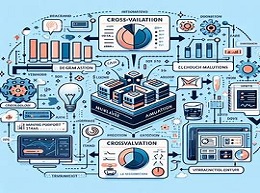The Impact of Quantum Machine Learning on Cryptography

Quantum Computing and Machine Learning Convergence
The convergence of quantum computing and machine learning represents a paradigm shift in the field of cryptography. As quantum computers continue to advance, their potential to break traditional cryptographic protocols poses both challenges and opportunities for cybersecurity. In this article, we'll delve into the impact of quantum machine learning on cryptography, examining how it may revolutionize security protocols and reshape the landscape of cybersecurity.
Understanding Quantum Machine Learning
Quantum machine learning combines principles from quantum computing and machine learning to solve complex computational problems more efficiently than classical algorithms. By leveraging the unique properties of quantum mechanics, such as superposition and entanglement, quantum machine learning algorithms hold the potential to outperform classical machine learning approaches in certain applications.
Example: Quantum Neural Networks
Quantum neural networks use quantum computing principles to process and analyze data, offering the potential for exponential speedup in training and inference tasks. These networks could revolutionize fields such as pattern recognition, optimization, and data classification.
The Implications for Cryptography
Quantum computing's ability to solve complex mathematical problems, such as integer factorization and discrete logarithms, threatens the security of traditional cryptographic protocols, such as RSA and ECC. As quantum computers become more powerful, they could render many existing encryption schemes vulnerable to attacks, necessitating the development of quantum-resistant cryptographic algorithms.
Example: Shor's Algorithm
Shor's algorithm, a quantum algorithm developed by mathematician Peter Shor in 1994, can efficiently factor large integers and solve the discrete logarithm problem. This capability poses a significant threat to RSA and ECC, which rely on the difficulty of factoring large numbers for security.
Quantum-Safe Cryptography: Mitigating Quantum Threats
To address the looming threat posed by quantum computing to traditional cryptographic protocols, researchers are actively developing quantum-safe cryptographic algorithms that are resistant to quantum attacks. These algorithms leverage mathematical structures that remain secure even in the presence of quantum computers.
Example: Lattice-Based Cryptography
Lattice-based cryptography is one of the most promising approaches for quantum-resistant encryption. It relies on the hardness of certain lattice problems, such as the Shortest Vector Problem (SVP) and the Learning With Errors (LWE) problem, which are believed to be difficult for quantum computers to solve.
Leveraging Quantum Machine Learning for Cryptography
While quantum computing poses challenges for traditional cryptography, quantum machine learning offers new opportunities for enhancing cybersecurity. Researchers are exploring the use of quantum machine learning techniques to develop novel cryptographic protocols and security mechanisms that leverage the computational advantages of quantum computing.
Example: Quantum Key Distribution (QKD)
Quantum key distribution is a quantum cryptographic protocol that uses quantum mechanics to secure communication channels. By leveraging quantum properties such as entanglement and superposition, QKD enables the distribution of encryption keys with unconditional security guarantees, making it resistant to attacks from quantum computers.
Challenges and Future Directions
Despite the potential benefits of quantum machine learning for cryptography, several challenges must be overcome before these technologies can be widely adopted in practice. These challenges include scalability, error correction, and the development of practical quantum computing hardware.
Example: Error Correction
Quantum computers are inherently prone to errors due to decoherence and noise. Developing robust error correction techniques is essential for ensuring the reliability and accuracy of quantum machine learning algorithms in cryptographic applications.
Navigating the Quantum Cryptography Landscape
As quantum computing and machine learning continue to advance, their impact on cryptography and cybersecurity will be profound. While quantum computing poses challenges for traditional cryptographic protocols, it also opens new possibilities for quantum-safe encryption and security mechanisms. By leveraging the synergies between quantum computing and machine learning, researchers and practitioners can navigate the evolving landscape of quantum cryptography and develop innovative solutions to address emerging threats in the digital age.













